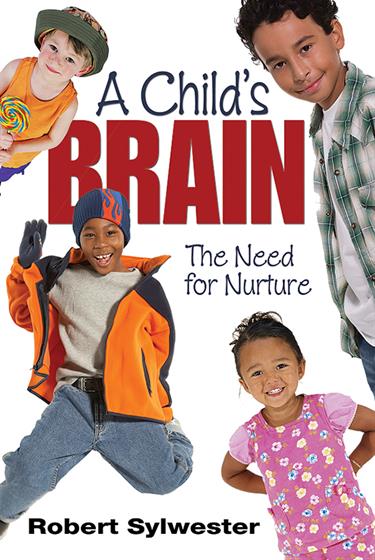Description
"This valuable, reader-friendly book helps parents, teachers, and others who work with young children understand the complex and amazing processes involved as the young brain grows and develops."
—David A. Sousa, Consultant in Educational Neuroscience, Author of How the Brain Learns
"The book reminds us of the importance of nurturing children. We need to help children develop from their core, even if that development cannot be measured on a test."
—Sonia Trehan Kelly, Director, Blue River Montessori School, Duxbury, MA
Learn how a child's brain works, develops, and changes during the critical stages of childhood!
Robert Sylwester, author of 10 books, has written this volume to help parents and educators understand children's cognitive development and provide suggestions on how to nurture children to their full potential. A companion to The Adolescent Brain, this rich resource:
- Examines the neurobiology of childhood, explaining the body/brain systems that develop during pregnancy, infancy, and childhood
Explores factors that can enhance or delay development, such as nutrition, family life, relationships, illness, intelligence, technology, creativity, and the arts
Provides practical suggestions to help adults promote healthy development and successful learning in the children they encounter
Includes a glossary of neurobiological terms
A Child's Brain helps parents and educators understand the biological, emotional, and neurological changes that occur during childhood so they can support children's learning, socialization, and growth.
Key features
An engaging and enlightening discussion of the child's developing brain and developmental needs by author, educator, scientist, and grandparent of 20 children, Robert Sylwester, who clearly delineates the need for unconditional love and positive role modeling during the vulnerable and protracted stage of human childhood.
- Part I focuses on the neurobiology of childhood, explaining the basic body/brain systems that develop during pregnancy, infancy, and childhood.
- Part II explores the childhood experiences that can enhance or delay development, including nutrition, illness, exercise, language acquisition, social interaction and collaboration.
- Two chapters focus on the increasing role of technology in children's lives, and our need for the arts--and its importance in the curriculum--as the playing field on which intelligence and creativity develop.
- Throughout, Sylwester focuses on the knowledge and skills adults need to nurture children and help them develop into responsible adolescents and autonomous adults.
- A glossary of key neurobiological terms is included in the back matter.



